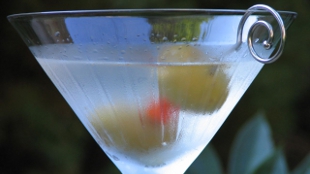 FLICKR, KEN30684The key to preventing relapse in recovering alcoholics may be to block memories associated with the pleasurable effects of drinking, according to a new study in rats. Neuroscientists at the University of California, San Francisco (UCSF), found that administering the drug rapamycin to block the mTORC1 pathway, which is associated with learning and memory, helped reduce alcoholic relapse in rats that had developed a preference for alcohol. The results were published Sunday (June 23) in Nature Neuroscience.
FLICKR, KEN30684The key to preventing relapse in recovering alcoholics may be to block memories associated with the pleasurable effects of drinking, according to a new study in rats. Neuroscientists at the University of California, San Francisco (UCSF), found that administering the drug rapamycin to block the mTORC1 pathway, which is associated with learning and memory, helped reduce alcoholic relapse in rats that had developed a preference for alcohol. The results were published Sunday (June 23) in Nature Neuroscience.
The mTORC1 pathway is versatile, spawning proteins that regulate a variety of physiological functions in several species, from autophagy and the growth and proliferation of stem cells to mitochondrial metabolism and memory recall. Rapamycin, a powerful antifungal, disrupts the mTORC1 pathway, and research has already shown the drug’s potential in treating drug addiction and post-traumatic stress disorder byu targeting the pathway. “It’s really excellent,” Charles O’Brien, director of the Center for Studies of Addiction at the University of Pennsylvania in Philadelphia, told Nature. “Fundamentally, addiction is a memory, and [the authors] are going straight at what is actually going on in the brain.”
UCSF neuroscientist Dorit Ron, who led the team of researchers, told Nature that while the scientists weren’t sure which specific memory they ...














